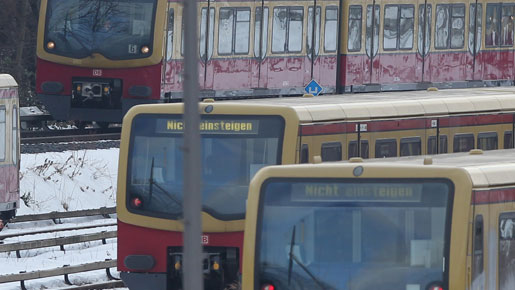
Bulgaria plans a wide-ranging overhaul of its indebted state railways, taking a 200 million euro loan to help turn the antiquated network into a profitable operation, its transport minister told Reuters.
The BDZ railway operator is unable to pay back long-term loans of 550 million levs ($370.9m) due to years of mismanagement, recession and the closure of insolvent steel mill Kremikovtzi, which was one of the company’s major clients, Alexander Tsvetkov said in an interview.
The European Union’s poorest member needs to revamp its Soviet-era potholed roads, railways and bus transport to attract badly-needed foreign investment in sectors like tourism as it struggles to escape a deep recession.
The transport ministry has drafted a package of reforms and restructuring of BDZ’s debts, which should be implemented by 2014 and could turn the group – which employs over 14,000 people – into a profitable operation, Tsvetkov said.
“Nobody will give money to railways which have not been reformed so we are offering reforms in return for a loan,” Tsvetkov said.
Bulgaria is in talks with the World Bank and the European Bank for Reconstruction and Development (EBRD) for a 200 million euro ($266.4m) loan and the plan also includes job cuts, stricter budget discipline and cutting unnecessary spending, he said.
The overhaul has been long delayed and BDZ’s freight volumes fell 39.5 percent in 2009 as many metals, textile and construction companies cut operations. Passenger traffic fell 7.1 percent year-on-year.
More than half of its passenger train carriages are over 20 years old and experts say the company needs some 2.6 billion levs for upgrades and modernisation.
Slow progress
Sofia also plans to use part of the 11 billion euros in EU aid earmarked for the Balkan country by 2013 to reconstruct its outdated railway and road infrastructure.
Top priority is the rail route from the capital Sofia to the Black Sea port of Burgas, allowing trains to travel at a maximum 160km per hour and due to be completed by the end of 2013. It is worth a total 530 million euros.
Bulgaria also hopes finally to finish the construction a 226 million euro bridge to Romania over the Danube, a long-delayed project which has become a symbol of how slowly business is done in the Balkans.
The bridge is partly financed by an EU programme which expires this year and Romania and Bulgaria – the bloc’s two poorest members – have asked for an extension.
Tsvetkov said there were signs Brussels would extend the deadline to 2012, which could allow the bridge to open by the end of next year.
“If this deadline is not extended, Bulgaria will not be able to build the bridge using state funds, which means construction works will be frozen,” he said.

